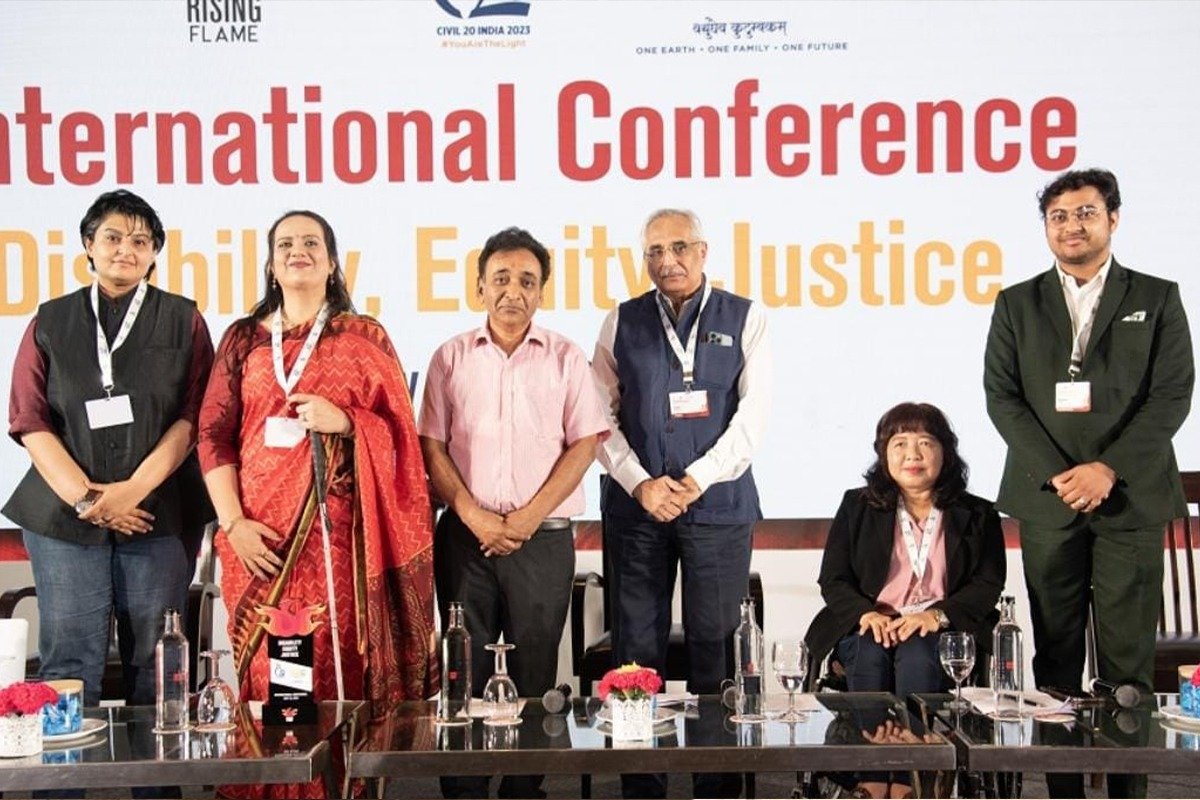NEW DELHI: The Civil20 (C20) working group, the official engagement group of G20, on Monday convened to discuss strategies for creating more inclusive economies and communities for persons with disabilities. The session emphasized the pivotal role of accessibility in sustainable development.
Experts and representatives from nine countries participated in the international conference held in New Delhi, with over 15 countries joining online. More than 500 individuals attended the conference, both in person and virtually.
A key focus of the plenary session was on exploring how education, skills development, and livelihood generation can empower persons with disabilities. Delegates also shared their insights on disability in relation to the environment, climate justice, disaster risk reduction, and other priority areas of the G20.
The Disability Equity Justice working group is one of the 15 working groups within C20, representing the largest minority group in the world —1.3 billion persons with disabilities.
Civil20 India took a historic step by establishing a dedicated working group to address the needs of this marginalized population, demonstrating India’s leadership in promoting disability inclusion within G20 declarations.
“Research indicates that the cost of exclusion can amount to as much as 7% of a country’s GDP. Therefore, it is crucial for persons with disabilities to have a seat at the table, ensuring that economic development is just, resilient, inclusive, and sustainable. As a result of our collective efforts, C20 leaders have decided to mainstream disability and establish this dedicated group to amplify the voices of persons with disabilities,” said Nidhi Ashok Goyal, a woman with a disability and founder-executive director of Rising Flame, and Steering Committee Member of Civil20 India.
Keshav Suri, executive director of The Lalit Suri Hospitality Group and founder of the Keshav Suri Foundation, emphasized the importance of empathy, saying, “We are not saving anybody; we are simply doing the right thing. We are building an empathetic organization for an empathetic country and world.”
The primary objective of the working group is to develop a policy brief that accurately represents the diverse issues faced by women and persons with disabilities. This inclusive process involves active participation and consultation with the target population.
The working group conducted four hybrid consultations across the country, bringing together over 1,000 participants from 15 countries to share their perspectives and discuss crucial matters such as inclusive education, women with disabilities, meaningful participation, workforce inclusion, livelihoods, new-age jobs, and access to healthcare.
G20 is an intergovernmental forum consisting of 19 countries and the European Union (EU).

